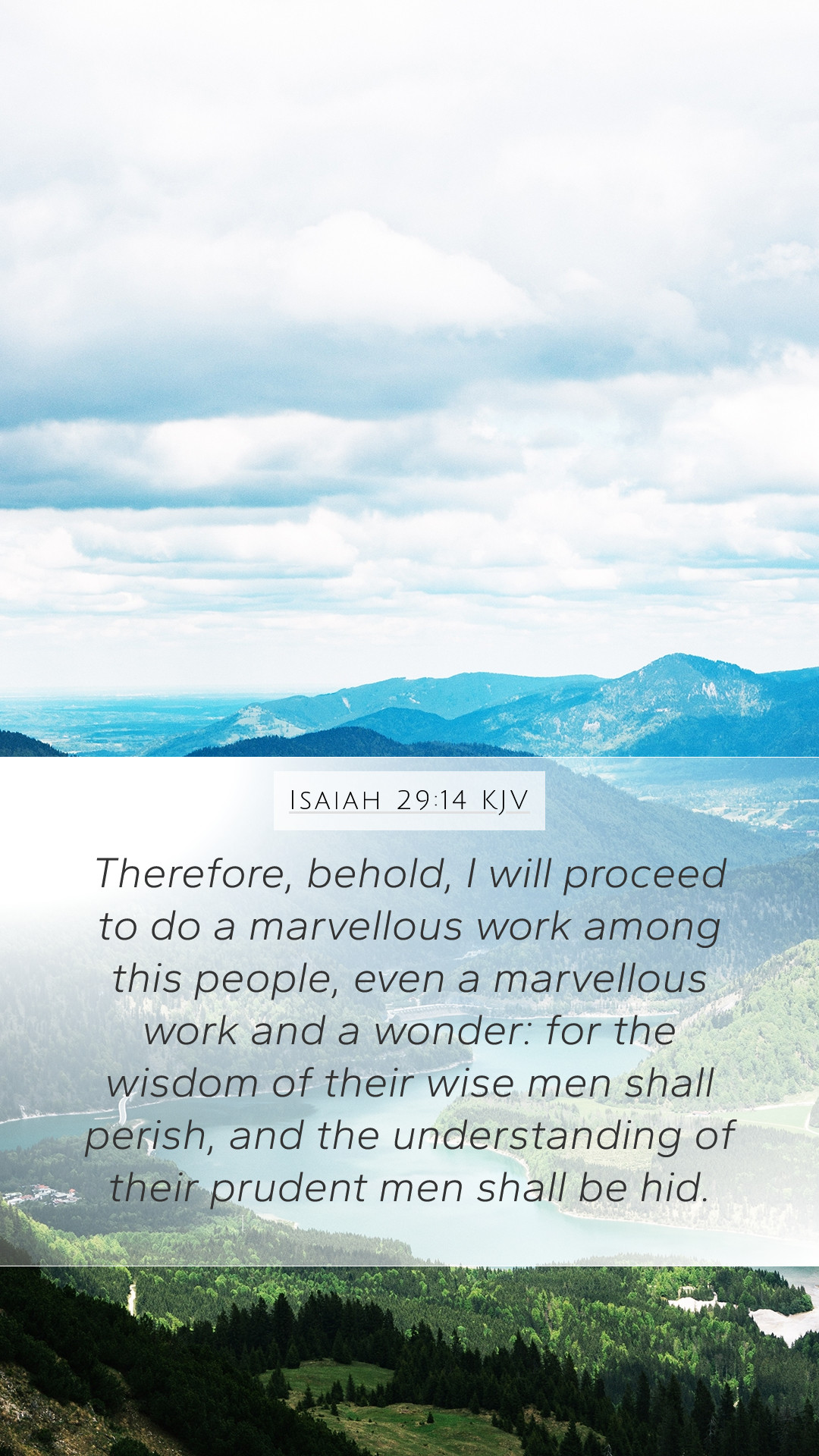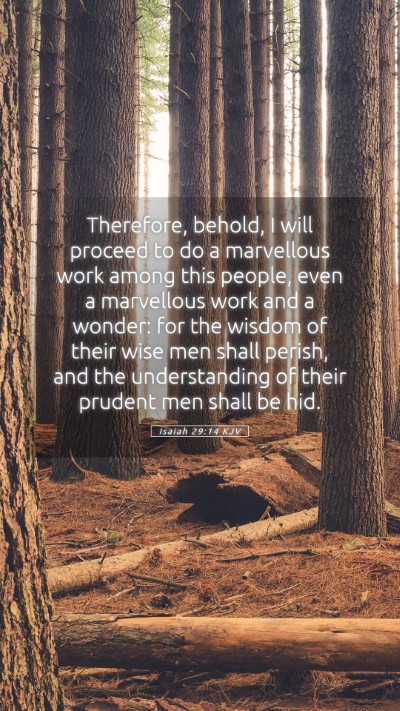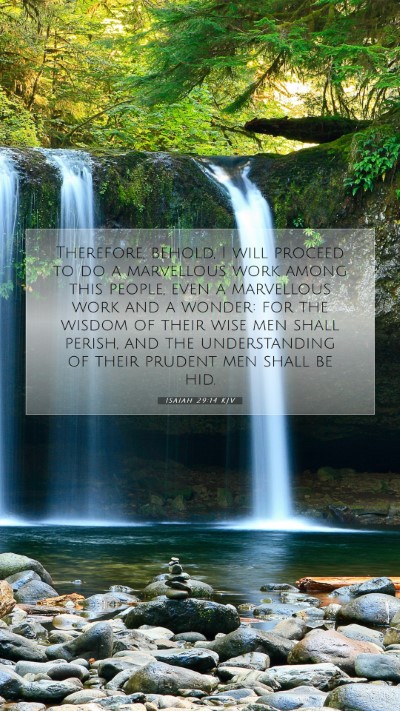Understanding Isaiah 29:14
Isaiah 29:14 states, "Therefore, behold, I will again do a marvelous work among this people, a marvelous work and a wonder; for the wisdom of their wise men shall perish, and the understanding of their prudent men shall be hidden." This verse vividly portrays God's intention to intervene in a manner that will astonish and confound the wise, revealing a divine plan that transcends human understanding.
Bible Verse Meanings and Interpretations
The significance of Isaiah 29:14 can be explored through the insights of various biblical commentators:
- Matthew Henry: Henry emphasizes the "marvelous work" referred to, interpreting it as God's surprising actions in the world, particularly through the coming of Christ. He highlights that human wisdom, no matter how esteemed, is ultimately insufficient without divine guidance.
- Albert Barnes: Barnes notes that God's judgments often lead to the destruction of worldly wisdom. He argues that the "wise men" who rely solely on their intellect will find their understanding confounded. This serves as a reminder of the limitations of human insight compared to divine wisdom.
- Adam Clarke: Clarke informs us that the "marvelous work" can refer to the judgments that God would bring upon the people of Israel, as well as the miraculous acts that would confirm His power over their lives. He emphasizes the theme of spiritual blindness that overcomes those who refuse to acknowledge God.
Theological Insights
Isaiah 29:14 reflects several important theological themes:
- Divine Intervention: This verse asserts God's active role in human affairs, indicating that He orchestrates events and reveals truth according to His will.
- Wisdom and Knowledge: The defeat of human wisdom in light of God's revelation serves as a foundational truth in biblical exegesis. It emphasizes the necessity for humility in seeking understanding through Scripture.
- Judgment and Mercy: The juxtaposition of judgment (the destruction of the wise) and mercy (the ‘marvelous work’) signifies a holistic divine narrative that encompasses both justice and compassion.
Historical Context
In understanding Isaiah 29:14, one must consider the historical context of the Israelites during Isaiah's time. The people were facing impending judgment due to their disobedience and reliance on human strength rather than God.
This backdrop adds depth to the text, making it relevant not only for those ancient listeners but also for modern readers grappling with similar themes of reliance and faith.
Application to Daily Life
Reflecting on the meaning of Isaiah 29:14 encourages readers today to:
- Seek divine wisdom through prayer and Scripture rather than relying solely on human intellect.
- Acknowledge the unforeseen ways in which God may work in their lives.
- Remain humble, recognizing that true understanding comes from submission to God's will and guidance.
Additional Cross References
For a more comprehensive understanding of the themes present in Isaiah 29:14, consider the following cross references:
- 1 Corinthians 1:19: "For it is written, I will destroy the wisdom of the wise, and bring to nothing the understanding of the prudent."
- Job 5:12: "He frustrates the devices of the crafty, so that their hands cannot carry out their plans."
- Psalms 146:3: "Do not put your trust in princes, nor in a son of man, in whom there is no help."
Conclusion
Isaiah 29:14 serves as a powerful reminder of the limits of human wisdom and the necessity of divine insight. Through careful biblical exegesis and scriptural analysis, readers can gain deeper Bible study insights, enriching their understanding and application of this verse in their lives.


